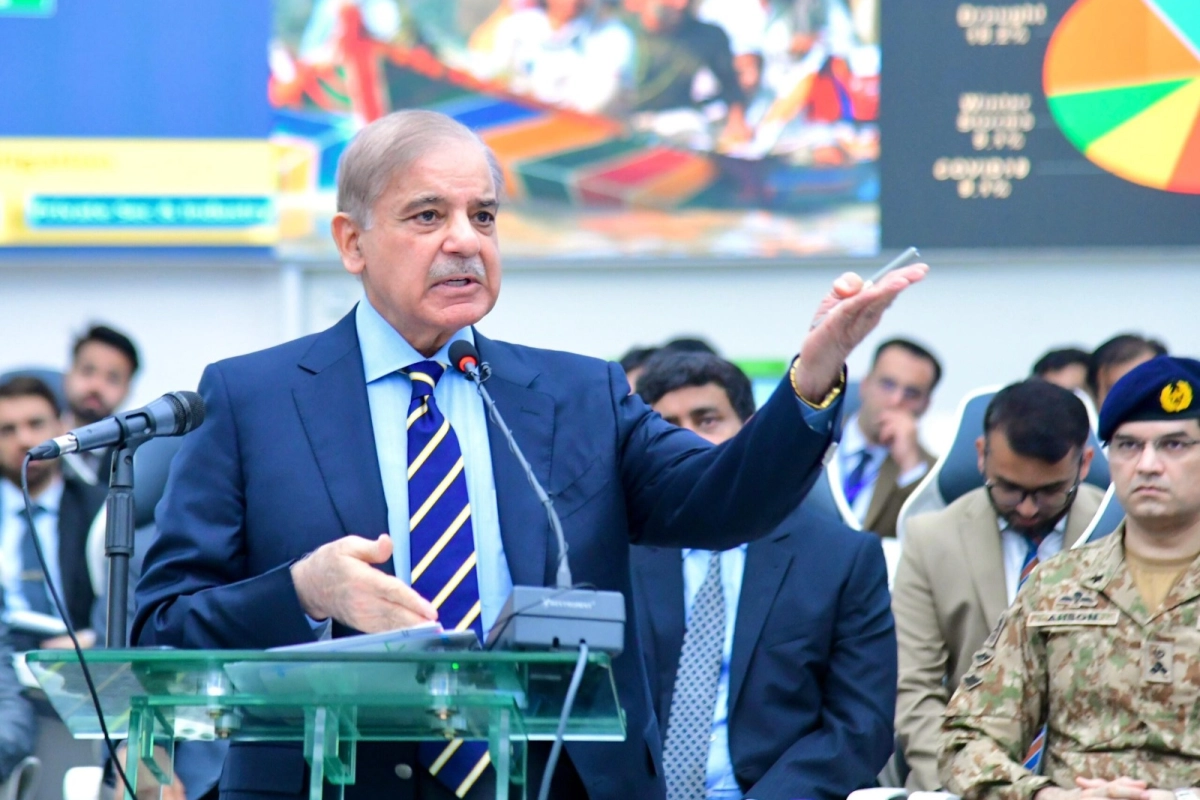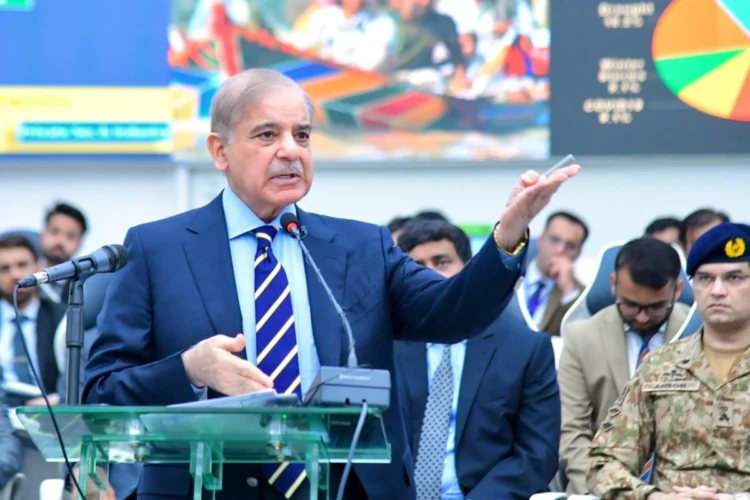Islamabad: Prime Minister Shehbaz Sharif has directed all relevant federal and provincial institutions to initiate proactive and coordinated measures to deal with future monsoon and cloudburst-related emergencies.
He emphasized that while the current monsoon season has been met with improved preparedness—resulting in fewer casualties—Pakistan must brace for increased intensity in future climate events. The federal government, he assured, will extend full support, and ministries such as Climate Change and Planning must actively collaborate with NDMA and provinces for robust future planning.
The Prime Minister made these remarks on Thursday during his visit to the National Emergencies Operations Centre (NEOC) in Islamabad, where he was briefed on the ongoing monsoon rains and resulting flood situation. He expressed satisfaction with NDMA’s coordination with provincial authorities and praised the use of modern technology and capable human resources.
Highlighting recent incidents of cloudbursts in cities such as Chakwal, Lahore, and Rawalpindi, the Prime Minister said the government had faced extraordinary situations in some areas but was fortunate that southern Punjab and other regions did not experience severe rainfall. He also acknowledged the effective response efforts by provincial governments, especially Punjab under Chief Minister Maryam Nawaz.
Expressing grief over the loss of lives, he offered prayers for the deceased and injured, noting that while casualties have been reduced due to better preparedness, any loss of life remains tragic.
Stressing the urgency of future readiness, the Prime Minister instructed that NDMA should work closely with provincial disaster management authorities (PDMAs) and be provided with all necessary resources. He urged provinces to invest in technology, rescue infrastructure, and human capital.
The Prime Minister also called on the Ministries of Planning and Climate Change to develop a comprehensive preparedness plan in collaboration with NDMA and provincial governments. He noted that despite contributing minimally to global emissions, Pakistan remains among the top ten most climate-vulnerable countries, making resilience-building a national imperative.
Referring to the current monsoon season as a learning opportunity, he urged that experiences be documented and used to improve next year’s response strategies. He also praised the Information Ministry’s role in raising public awareness and instructed that public outreach campaigns be further expanded through all media platforms.
Earlier, NDMA Chairman Lt. Gen. Inam Haider briefed the Prime Minister, stating that this year’s monsoon intensity has been 60–70% higher than last year, with more rainfall cycles than usual. So far, 178 lives have been lost and over 500 people injured. The most affected areas include southern Punjab, regions surrounding Islamabad, and Azad Jammu and Kashmir.
The briefing also indicated that daily updates are being shared with provincial authorities, and coordination continues with the Army, Rescue 1122, irrigation departments, and other key agencies. Forecasts suggest more rainfall in Punjab, KP’s northern regions, and AJK in the coming days, with at least four additional rain cycles expected between July 21 and mid-August. The Prime Minister was also informed that urban flooding remains a concern, especially in low-lying areas, with heavy rains expected in Rawalpindi and Islamabad tonight.


























